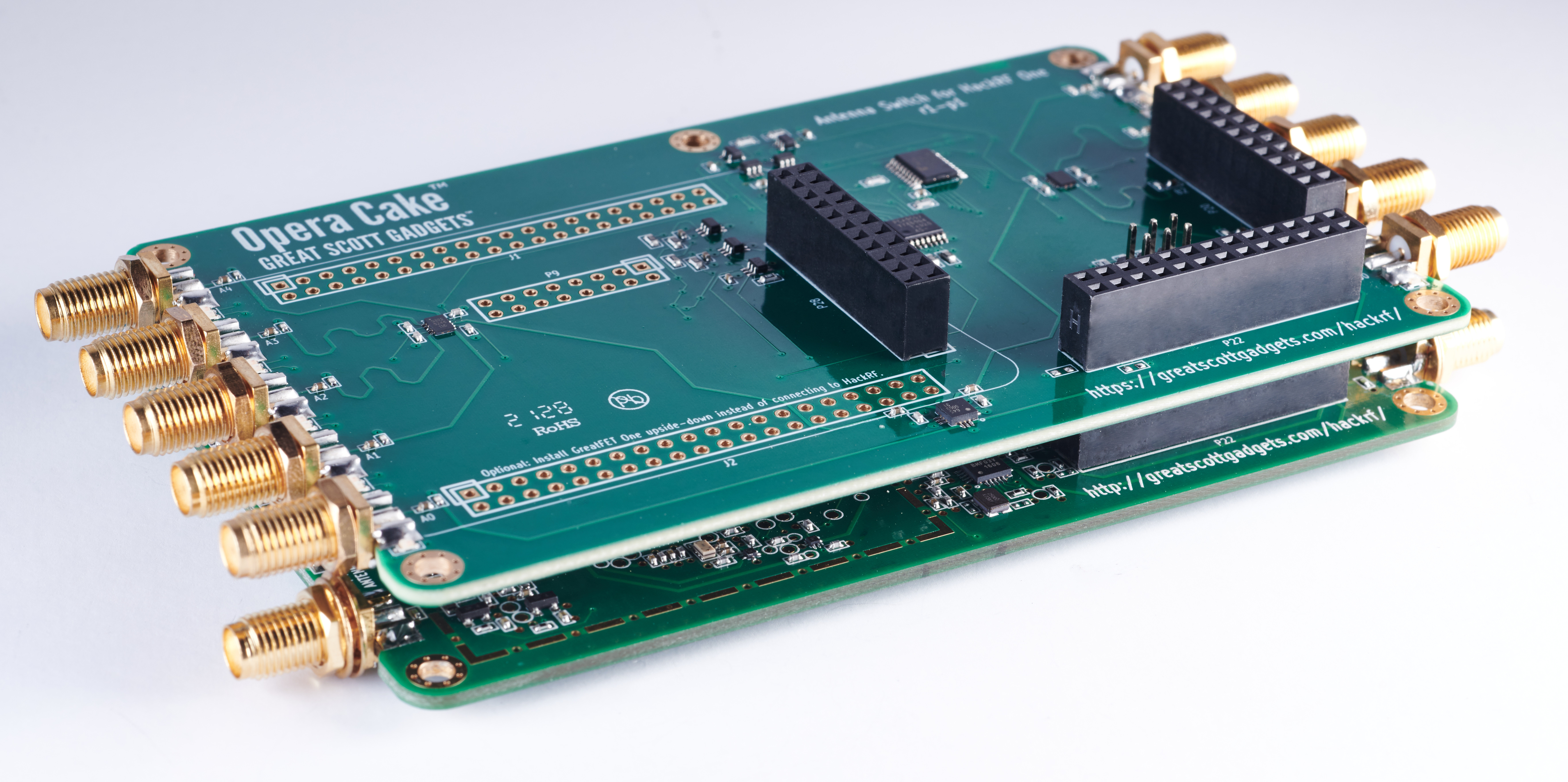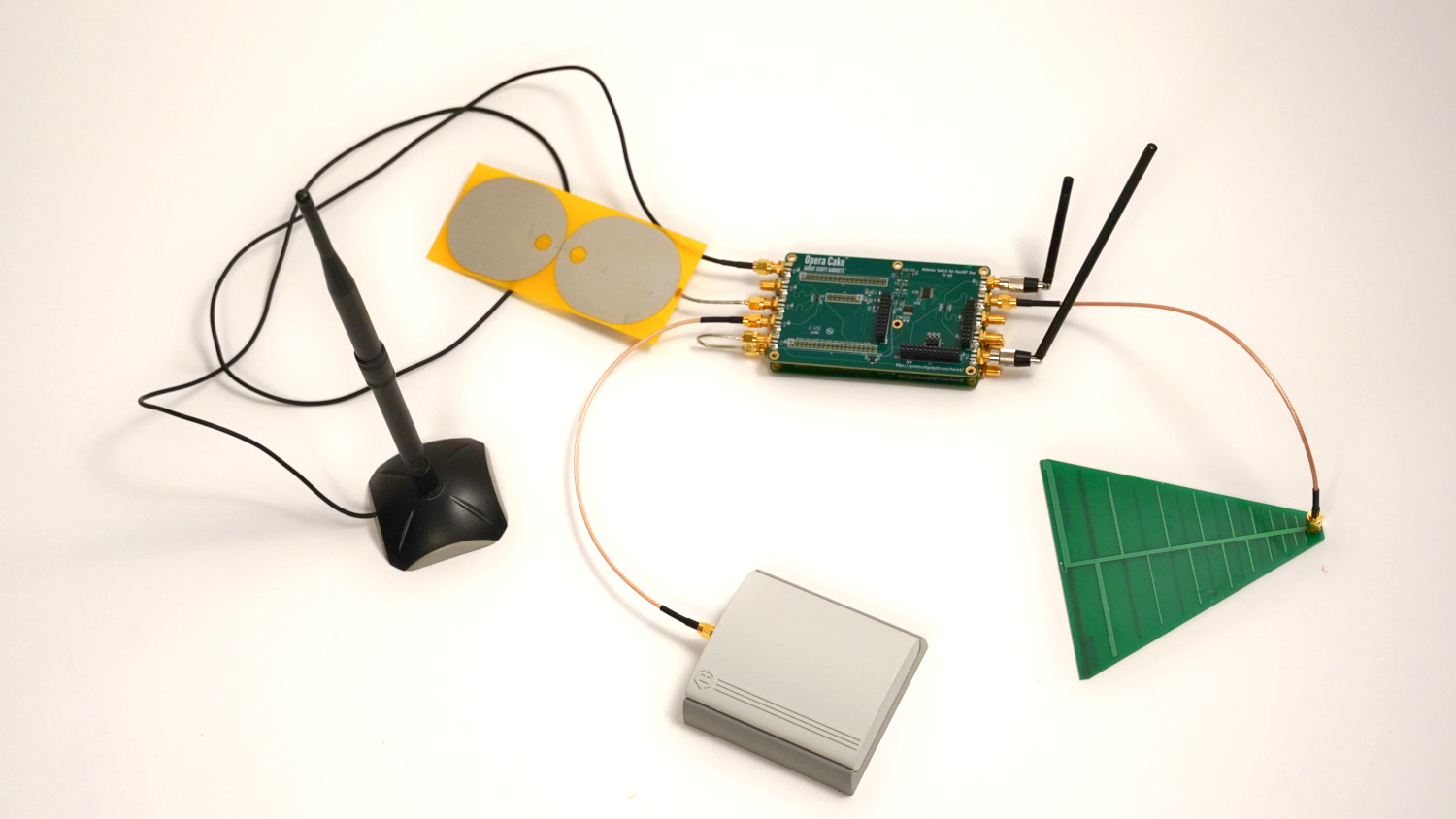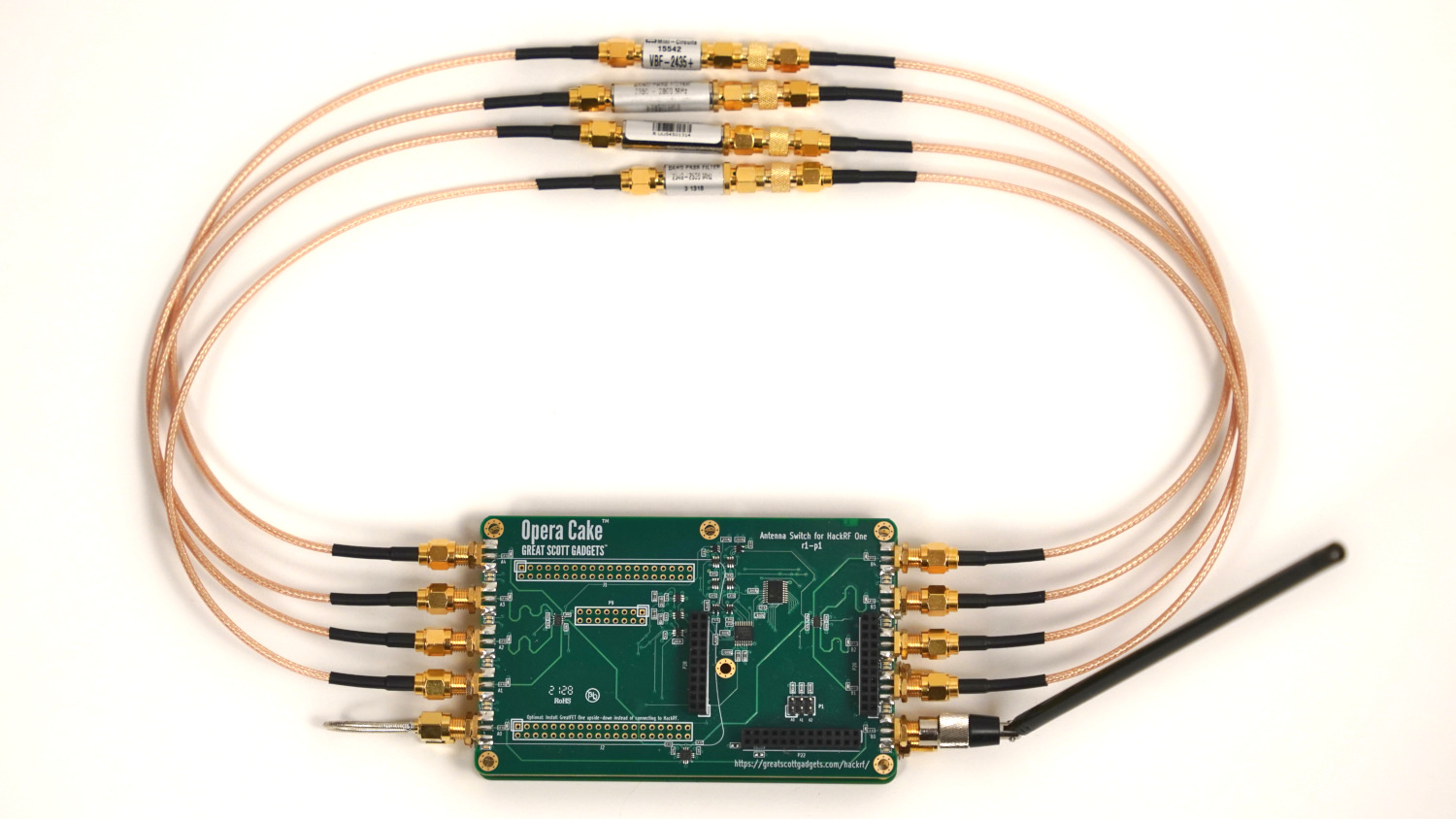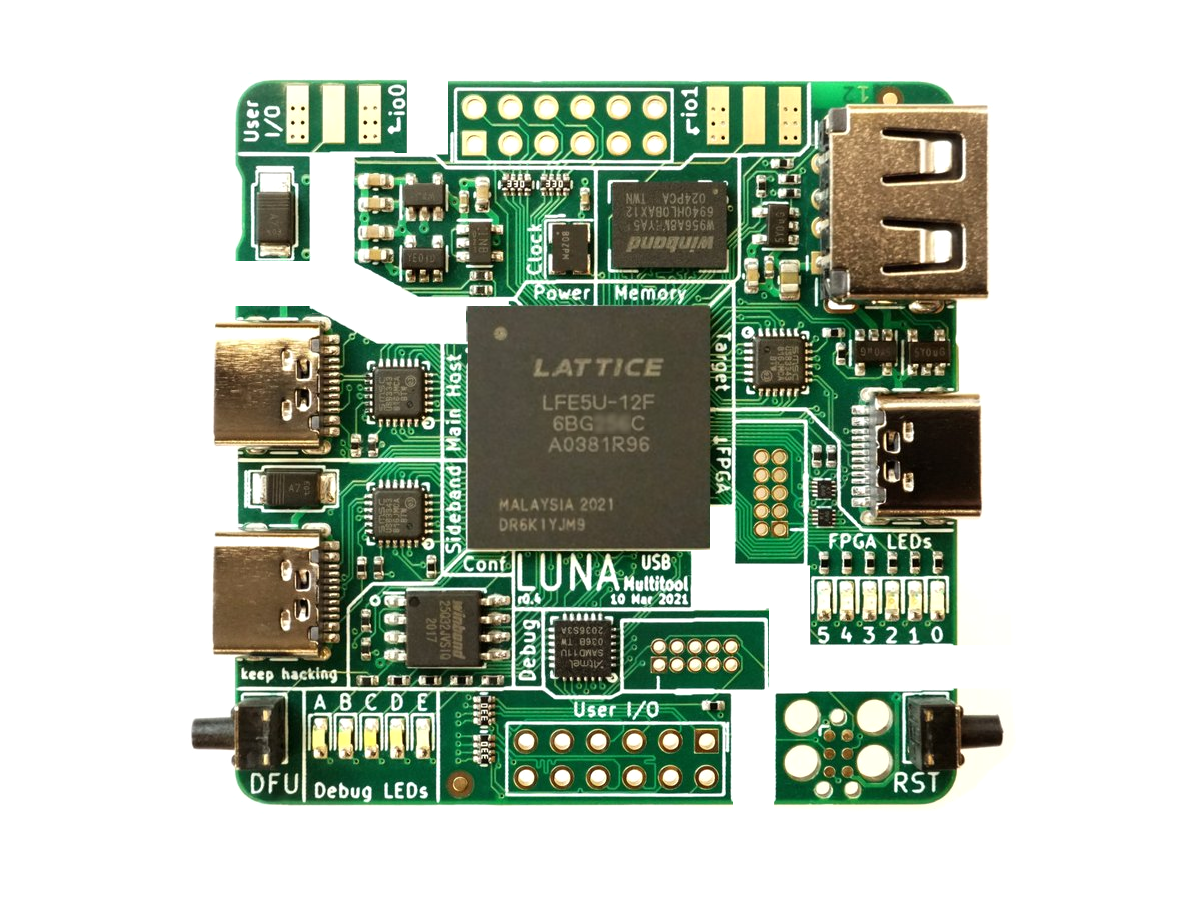Introducing Opera Cake
Starting this week, we are shipping Opera Cake, our multi-use antenna-switching add-on for HackRF One!

This add-on board has two primary ports, each connected to any of eight secondary ports, and it is optimized for use as a pair of 1x4 switches or as a single 1x8 switch.
As a 1x8 switch, Opera Cake can connect your HackRF to a variety of antennas at once, such as a long wire antenna for HF bands, a discone for VHF and UHF, a dipole for 2.4 GHz, and a dish for a satellite band. Once connected to your Opera Cake you can switch between all of your antennas in software instead of making physical hardware swaps.
When set up as a pair of 1x4 switches you could use Opera Cake as a switched filter bank. To do this, connect port A1 to B1, A2 to B2, A3 to B3, and A4 to B4 through physical SMA filters and cables of your choosing. This setup allows you to change your transmit or receive to be through the filter of your choosing without having to reconnect hardware every time you would like to use a different filter.
You can control Opera Cake for HackRF One manually with our command-line software hackrf_operacake, or you can configure HackRF One’s firmware to automatically switch Opera Cake ports based on frequency or time. Automated antenna switching and hackrf_operacake are both available in the latest HackRF One release. You can learn more about Opera Cake’s modes of operation in our HackRF documentation.
If you are looking to pick up an Opera Cake of your own, please check our website for the list of Great Scott Gadgets Opera Cake resellers. We hope you enjoy Opera Cake and stop by our Discord, or tag us on Twitter or Instagram, to show us your Opera Cake projects!



